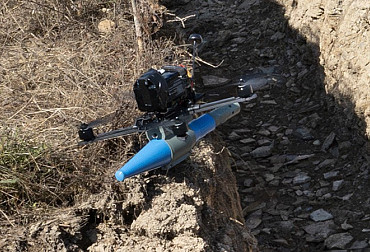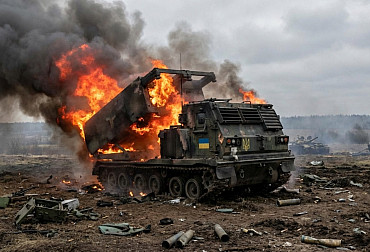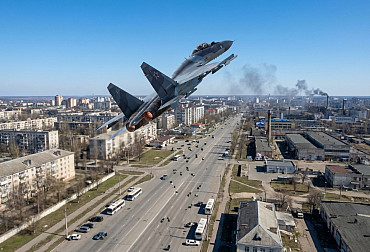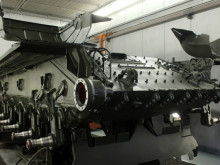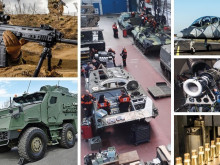The role and prospects of conscription and military duty in the Czech Republic: Adaptation to modern security challenges
In response to the dynamically changing international security environment, the Czech Republic faces the challenge of adapting its defence system to current and future threats. Although compulsory military service was abolished in 2005, conscription remains a fundamental pillar of national defence. However, the current model based on voluntary participation in the reserve forces may not be sufficient for a rapid and effective response in crisis situations. There is thus a debate on the extension and modernisation of this system, on increasing citizens' motivation to participate in the defence of the country and on the need for more intensive training. The possibility of reintroducing compulsory military service as a means of strengthening defence and improving national cohesion is also being considered, stressing the need for broad public and political support for any changes adopted.
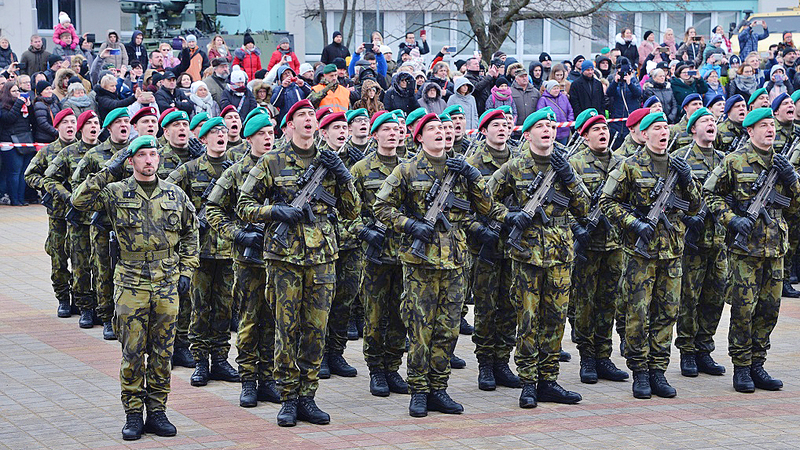
Current status and legal framework of the Czech Republic
Conscription in the Czech Republic, enshrined in Act No. 585/2004 Coll., represents a key element of national defence policy. Although compulsory military service was abolished in 2005, the basic duty of citizens towards the State in the field of defence remains. Instead of traditional military service, emphasis is now placed on the possibility of voluntary participation in the reserve forces, which allows citizens to choose for themselves the form in which they will fulfil their defence obligations. This model allows for flexibility and broader participation opportunities without direct pressure to complete active military service.
However, given the dynamically changing international security environment, where new threats require a rapid and effective response, this system may have some shortcomings. Insufficient capacity for rapid mobilisation and a potential shortage of qualified reservists may limit the country's defence capability in the event of a crisis. This situation raises discussions about the need to revise the current model, possibly redesigning or expanding it to better reflect current and especially future defence needs.
One proposed solution may be the introduction of more focused and intensive training programmes for reservists to ensure that even volunteer units are highly skilled and rapidly deployable in the event of an acute need. Another option is to increase the incentive for volunteer participation through various benefits such as tax credits, priority access to training programs, or post-service career benefits. In addition, strengthening public perception of the importance of defence preparedness and participation in national defence is also being considered, which could help increase the number of volunteers.
In order to implement these changes effectively, it is essential that they are carefully analysed and discussed, both nationally and internationally (NATO), to ensure that the Czech Republic remains capable of facing future security challenges. The adaptation of the defence system in this context should be carried out with an emphasis on its effectiveness, sustainability and ability to respond to modern defence strategies and threats.
International security context
The current international security climate is characterised by rapid changes and new challenges that require NATO countries, including the Czech Republic, to not only maintain but also potentially strengthen their defence capabilities. Russia's military activity in Europe, especially its aggressive practices in Ukraine, and the ongoing turmoil in the Middle East are examples of geopolitical factors that significantly increase regional tensions and lead to fears of a wider conflict. These challenges pose direct threats to the security of states in close geographical and political proximity to conflict areas.
NATO, as a transatlantic defence pact, places great emphasis on the ability of its members to respond rapidly and in a coordinated manner. This requires member states to continuously assess and adapt their defence strategies to meet both current and future security needs. For the Czech Republic, this means not only investing in the modernisation and development of technological and military capabilities, but also considering adjustments to the conscription system.
At the same time, it is important that Czech defence strategies continuously evolve in response to new types of threats such as cyber attacks, hybrid warfare and disinformation campaigns, which are increasingly common tools of state and non-state aggression. This approach requires not only traditional military preparedness but also new forms of defence and cooperation at the international level.
In this context, it is thus essential that the Czech Republic proactively cooperate with NATO and other international partners on intelligence sharing, joint training missions and military exercises, all of which contribute to a better understanding of and response to international security threats. Consideration of strengthening or adapting conscription within this framework could be key to ensuring that the Czech Republic remains able to respond adequately to the dynamic security environment of the 21st century.
Possibility of reintroducing compulsory military service
In the current geopolitical situation, characterised by increased military uncertainty and risks, the Czech Republic may face the question of whether to reintroduce compulsory military service as a means of strengthening national defence. The reintroduction of compulsory military service could allow for a rapid increase in the number of qualified soldiers, which would provide the Czech Republic with better capacities for defence and response to potential military conflicts. This step could also contribute significantly to an increased sense of national cohesion and responsibility for one's own state.
In terms of practical implementation, the reintroduction of compulsory service would require significant organisational and financial resources. The state would have to invest in infrastructure, training facilities and the human and other resources needed to train new recruits, which would involve upgrading facilities and incorporating the latest technology and combat techniques. In addition, training programs would need to be updated and adapted to meet modern warfighting requirements and include preparation for cyber warfare and operations in hybrid environments.
In terms of social impact, such a move could spark controversy as it could be perceived as a return to outdated and unpopular methods. The issue of equity in conscription would also be key, with the need to ensure that the duty to serve is fairly distributed across all demographic groups. Politically, this change would need to be communicated transparently and with a clear explanation of its benefits and necessity in order to gain public and political support.
Comparison with other NATO countries
Within NATO, there are different approaches to conscription and defence strategies that the Czech Republic may consider when redesigning its defence system. For example, Estonia, Lithuania and Finland retain compulsory military service, which is seen as a key element of their national defence strategy. These countries see compulsory service as a means to strengthen national cohesion and defence. In these countries, it is emphasised that compulsory military service not only increases the number of trained troops capable of responding rapidly to security threats, but also promotes a sense of civic responsibility and preparedness.
On the other hand, states such as Germany and Denmark rely on models based on the professionalisation and technological advancement of their armed forces. These countries invest significant resources in training and equipping their professional armies, emphasising specialisation, modern technology and high levels of training. This approach is often justified by the need to effectively counter sophisticated modern threats that require a rapid and coordinated international response.
The Czech Republic should carefully weigh the advantages and disadvantages of both models. Inspiration from countries that have retained compulsory military service could help strengthen national defence capabilities and increase the willingness of citizens to participate in national defence. Conversely, adopting elements from professionalisation-based models could bring greater efficiency and better use of modern technologies and specialised capabilities in response to specific threats.
In this context, it is important that the Czech Republic's strategies are flexible and adaptive, able to respond to the changing security environment while maintaining a balance between traditional methods and modern defence techniques. This includes not only adapting training programmes and defence capabilities, but also taking into account the social and political factors that influence public support for different defence policies. In this way, the Czech Republic can optimise its defence strategies in line with international standards and its specific national needs.
The importance of technological progress and education
Modern defence strategies require the military to constantly monitor technological developments and integrate the latest innovations into its operations. Investments in advanced technologies such as autonomous weapon systems, drones, artificial intelligence, and cyber defence are essential to increase the operational capability and effectiveness of the Czech Armed Forces. These technologies can provide key advantages in modern conflict environments, such as improved enemy awareness, more accurate targeting, and minimized risks to human crews.
However, technological advances alone are not sufficient without an adequate training programme for the soldiers and reservists who will use these technologies. It is essential that regular and focused training be provided to provide soldiers not only with the theoretical knowledge but, more importantly, with the practical skills needed to operate modern technological systems. This includes specialist courses in areas such as cyber security, drone operations, and data analytics, which are key areas of focus in today's digitally connected battlefield.
At the same time, care must be taken to ensure that technology training is integrated into a broader training framework that promotes continuous learning and adaptability. Military training institutions should be equipped with the latest technologies and should work closely with technology companies and research institutions to ensure that training programs are up-to-date and relevant to the latest developments.
With the increasing importance of information and cyber warfare, it is also imperative that military strategies include a significant emphasis on defense and offense in cyberspace. Soldiers must be equipped with the skills needed to identify, deter, and respond to cyber threats, which requires not only technical proficiency but also the ability to make quick decisions and work as a team in a dynamic and often unpredictable environment.
Investments in technology and education thus represent the fundamental pillars for ensuring that the Czech Armed Forces can effectively counter not only traditional, but especially modern and asymmetric threats.
Strategic and ethical considerations
When discussing the possibility of reintroducing compulsory military service, it is necessary to consider both strategic and ethical aspects. Strategically, such a move could mean strengthening the defence capability of the state by expanding the number of trained units and increasing overall military readiness. Ethically, however, it raises questions about personal freedom and the duty of citizens to the state. For example, what is the moral justification for the state to require its citizens to risk their lives in the military, or how can the state ensure that compulsory service is fairly distributed among all socio-economic groups?
Another important factor is how the reintroduction of compulsory military service might affect public and international perceptions of the state and its defence policy. There is a need to ensure that such a move is not perceived as a militarisation of society, but as a logical and necessary response to specific security challenges. In the context of NATO, it is important that the Czech Republic continues to present itself as a responsible member of the alliance, capable of responding to international challenges in a balanced manner, with respect for fundamental human rights and democratic principles.
In the context of ethical aspects, it is also crucial to consider what mechanisms could be implemented to ensure that military service is conducted with full respect for ethical standards and that emphasis is placed on human rights and the protection of civilians in conflict situations. This includes thorough training and education of soldiers in the law of war and ethics, which is essential for a modern and morally conscious army.
Social and political implications
Any major changes to the conscription system, especially the possible reintroduction of compulsory military service, require transparent and open communication between the government and the public. It is essential that such changes are subject to a broad public debate in which both the potential benefits and the possible challenges or concerns associated with such measures are clearly and openly presented. Effective communication and public engagement are absolutely key to gaining widespread support, which is essential to the success of any national defence reform measures.
The government should place emphasis on explaining how any changes will contribute to the country's defence capability, how they impact on the security of each citizen, and what the economic and social consequences will be for individuals and society as a whole. It is important that discussions are conducted with full recognition of the diversity of views and with the aim of achieving the broadest possible consensus. In this regard, the role of the media, NGOs and academia in disseminating objective information and promoting constructive dialogue between the state and citizens should be considered.











